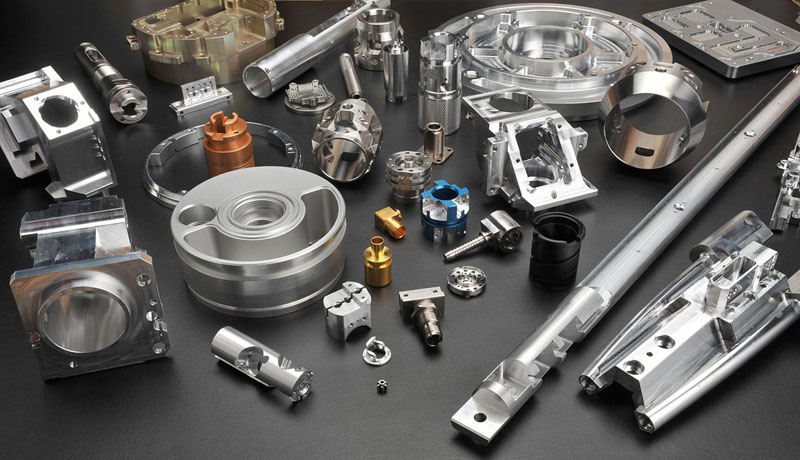With the advancement of technology and the expansion of manufacturing complexity, people have significantly shifted towards smaller and more customized batches. Small batch production enables manufacturers to flexibly adapt to market fluctuations, suppress inventory costs and waste. This method also helps with rapid prototyping and customization, effectively catering to niche markets. Small batch CNC machining has emerged as a popular solution for businesses looking to produce custom parts in limited quantities while maintaining cost-effectiveness.
Small Batch Machining’s Benefits For Businesses
Flexibility
The flexibility of manufacturing refers to the ability to adjust CNC machining processes based on changes in design, order volume, or materials without incurring significant costs or delays. This is a truly shining field of small-scale CNC machining.
With small batch CNC machining, businesses have the flexibility to adjust designs and specifications on the fly.
Consider a company that produces customized automotive parts. With the flexibility of the CNC machining process, it can quickly switch between different designs. If the customer requests design or material changes after the first batch of products, the company can reprogram the CNC machine tool to adapt to these changes. Compared with other production technologies, small batch CNC machining avoids expensive and time-consuming restructuring requirements.
Customization
In the manufacturing industry, customization refers to modifying the design, functionality, or specifications of a product to meet specific customer requirements. In small batch CNC machining, the achievable level of customization is significant.
You are not limited by fixed molds or tools when using CNC machine tools. As long as your design can be programmed onto CNC machine tools, it can be created.
Reduce Lead Time
Unlike traditional manufacturing methods that require lengthy setup times, CNC machining offers quick turnaround times for small batch production. This means businesses can get their products to market faster, respond to customer demand more efficiently, and stay ahead of competitors.
High Precision and Quality
CNC machining delivers exceptional precision and accuracy, ensuring consistent quality across all parts, regardless of batch size. This level of precision is crucial for industries where tight tolerances and strict quality standards are paramount. The inherent accuracy of CNC machining shines brightly in small batch production, providing excellent repeatability even in complex designs.
Reduce waste
While maintaining accuracy, errors and defective parts will be significantly reduced. When you can maintain accuracy, you will get fewer errors and defects. This means less waste, therefore the efficiency of material utilization is higher. This not only saves raw material costs, but also benefits sustainable development.
Enhance complex design capabilities
The high precision of CNC machining allows for the production of complex and intricate designs, which may not be achievable through manual processes. This feature opens up new possibilities for product design, enabling manufacturers to create parts with complex geometric shapes, strict tolerances, and complex functions.
Quality Assurance
Small batch CNC machining offers robust quality control measures, including in-process inspections and rigorous testing, to ensure that every part meets the highest quality standards. This commitment to quality gives businesses confidence in the reliability and performance of their products.
Competitive Advantage
By leveraging small batch CNC machining, businesses can gain a competitive edge in their respective industries. Whether introducing new products to market quickly, meeting customer demands for customization, or optimizing production processes, small batch CNC machining offers a strategic advantage that drives business growth and success.
The limitations and drawbacks of small batch CNC machining
Although the benefits are enormous, understanding the limitations of small batch CNC machining is crucial. Some challenges include higher unit costs compared to mass production, as well as the need for more complex planning and management to ensure efficient operations.
Higher unit costs
In small-scale production, unit costs may be higher due to the allocation of production costs to fewer projects. This may pose a challenge to companies with tight profit margins or those producing cost sensitive consumer goods. Despite these considerations, the flexibility and customizability provided often exceed the increase in unit cost.
Increase management workload
Small batch CNC machining requires strict management and monitoring to ensure efficiency. Each batch may require separate settings and programming, resulting in more complex logistics and the possibility of human errors.
Dependence on supplier reliability
Adopting the method of just in time production heavily relies on suppliers delivering materials on time. Any delay or error on the supplier’s side may disrupt the entire production plan.
Limited economies of scale
The economies of scale typically obtained in large-scale production may not be achievable in small-scale production. This means that as production increases, the company may not significantly reduce costs.
Low efficiency in mass production
If your company needs to produce the same products in large quantities, small batch CNC machining may not be the most effective or cost-effective method. In this case, traditional manufacturing methods may be more suitable.
Required technical labor force
Operating and programming CNC machine tools requires skilled labor. Enterprises must invest in training employees or hiring experienced operators, which may increase overall operating costs.

What is the design guide for small batch CNC machining?
When conducting small batch CNC machining, specific design guidelines must be considered. These considerations include the materials used, complex designs, tolerances, and precision machining processes. Please note that these guiding principles may vary depending on the specific requirements of each project.
Understanding material properties:
Different materials exhibit different behaviors during the processing. Understanding the characteristics of the materials used, such as hardness, brittleness, and heat resistance, is crucial as these characteristics can affect design and CNC machining processes.
Only specify tolerances when necessary:
Overspecifying tolerances can increase costs and production time. Use standard tolerances as much as possible and specify stricter tolerances only for key features.
Consider tool accessibility:
Ensure that standard CNC tools can access all areas of your design. Complex internal features or undercutting may require specialized tools, which may increase costs.
Simplify your design:
Strive for simplicity in design while maintaining functionality and aesthetics. Striving to eliminate excessive complexity may make the CNC machining process more challenging and potentially increase costs.
Avoid thin walls and fine features:
Thin walls and fine functionalities may be difficult to process and may lack durability. If your design requires these features, you must consider the limitations of the selected material and the functionality of the CNC machine tool.
Avoid sharp internal corners:
Rounded corners can enhance the strength of parts and extend the service life of tools. At the same time, there may be differences in the processing methods of sharp corners and rounded corners, which greatly affect the cost.
Optimize multi axis machining:
If you are using a multi axis CNC machine tool, please design your parts to fully utilize the functionality of the machine tool. This helps to reduce the need for repositioning parts, save time, and minimize errors.
Conclusion
Small batch CNC machining offers a cost-effective, flexible, and efficient solution for businesses seeking to produce custom parts in limited quantities. With its precision, speed, and scalability, small batch CNC machining is reshaping the manufacturing landscape, empowering businesses to innovate, adapt, and thrive in today’s dynamic market environment.



